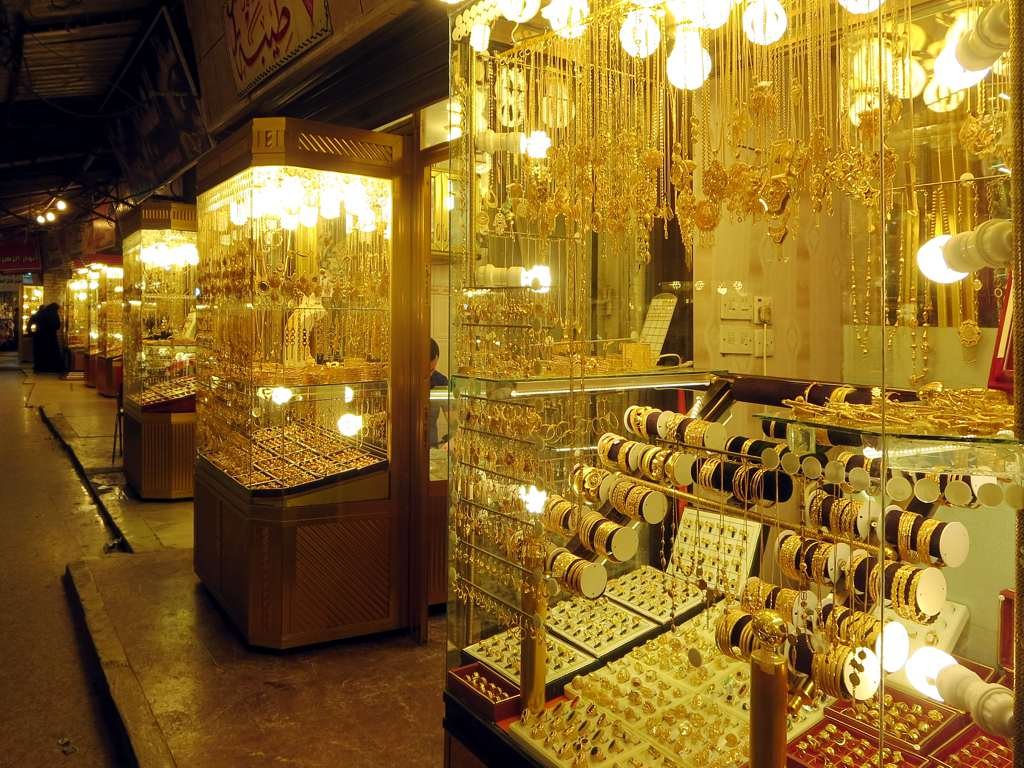Gold prices stabilize in Baghdad while experiencing a decline in Erbil. The Iraqi gold market continued to reflect mixed trends across the two major cities.
In Baghdad, trading activity remained steady. The wholesale markets on Al-Nahr Street recorded a selling price of 682,000 IQD per mithqal, which is around five grams, for 21-carat Gulf, Turkish, and European gold. The buying price stood slightly lower at 678,000 IQD. For 21-carat Iraqi gold, the selling price reached 652,000 IQD, while the buying price settled at 648,000 IQD.
Meanwhile, jewelry shops in Baghdad displayed slightly higher rates compared to the wholesale markets. The selling price for 21-carat Gulf gold ranged from 685,000 to 695,000 IQD. At the same time, the selling price for 21-carat Iraqi gold ranged between 655,000 and 665,000 IQD. These figures reflected stable demand within the capital city.
In contrast, the market in Erbil saw a downward shift. The selling price for 21-carat gold dropped to 665,000 IQD per mithqal. Furthermore, 18-carat gold sold at 570,000 IQD, marking a noticeable difference compared to Baghdad’s rates. This drop indicated weaker demand or higher supply in the Kurdistan Region’s capital.
Market observers note that the Iraq gold prices stabilize in Baghdad but fluctuate in other regions due to varying demand and regional economic conditions. Traders in Baghdad appeared confident, maintaining consistent pricing. However, Erbil’s decrease suggested either a strategic adjustment by sellers or lower purchasing activity.
Additionally, the price difference between 21-carat Gulf gold and Iraqi gold in Baghdad remained consistent. This pattern shows the influence of origin and craftsmanship on gold’s market value. Customers in Baghdad showed continued interest in both imported and locally produced gold, keeping the Iraq gold prices stabilize in Baghdad despite changes elsewhere.
Analysts believe that while Baghdad’s stability benefits traders and buyers alike, the gap between the two cities might encourage cross-regional buying. If Erbil’s prices stay lower, some buyers may shift their purchases north. However, transport costs and market preferences could balance this effect.
Overall, the Iraq gold prices stabilize in Baghdad while Erbil’s dip reveals the diversity of market trends across Iraq’s regions. Both markets remain active, but their direction in the coming days will depend on local economic shifts and consumer demand.


